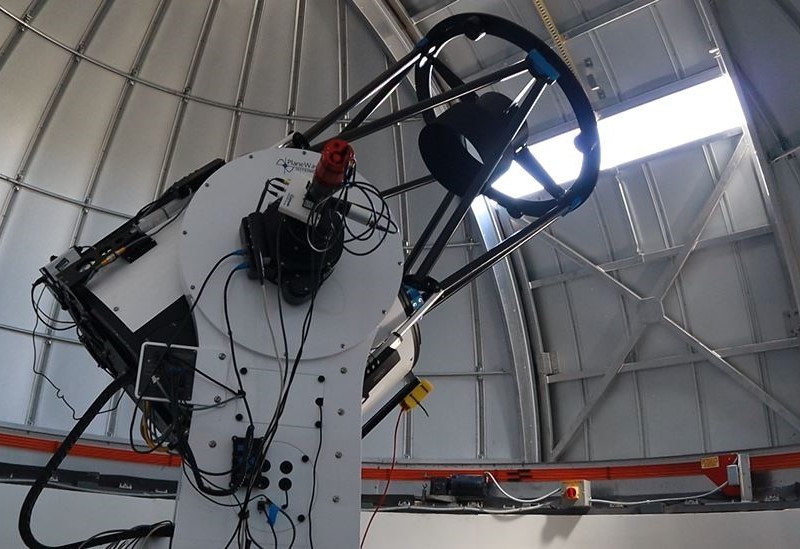The public is welcome year-round to visit the University of North Georgia's astronomical observatory to catch views out of this world merely four miles from its Dahlonega campus, according to UNG officials.
“If you haven't seen Saturn through a telescope, it's remarkable,” Associate Professor of Astronomy Gregory Feiden said.
The university has had an observatory on its campus since the 1960s; however, the current facility was revamped in 2020 and has been on the same grounds since the 1990s, Feiden said.
“We have a 28-inch telescope, which is fairly large. It’s the largest in the public university system in Georgia,” he said. “Then we have a 24-inch [telescope], which is the largest that most people might expect to find at a really well-to-do amateur's backyard.”
Both telescopes are housed in domed rooms that hold about 20 people each. Those domes open and close to protect equipment and centralize the point of view. Both telescopes are operated and tracked out of a separate area that acts as a classroom and viewing lab, which is the first stop for people who visit the facility, Feiden said.
“People can expect to get a little bit of education about some of the objects they might be looking at, some other cool stuff in astronomy that maybe is in the news, and then they'll get to go and spend a half hour to 45 minutes at the telescope looking at several different objects and getting to ask questions of the telescope operators in the room or whoever might be there,” he said.
The UNG observatory is a student-run operation. Guests are greeted by one of the facility’s telescope operators and are ushered to the classroom area to prep for the night sky.
Martine Maggi studies physics and astrophysics at the university and is one person who has been seen commonly at the observatory throughout the past few years. She has also served as the face of the student body in her area of study, she said.
“[We] really try to provide this narration of the cosmos as we go through and really just bring that immersive experience [to guests],” Maggi said. “Or if we are feeling particularly existential, we can get into the large-scale structure of anything, but either way, at every step of this journey, we want to impart any of the guests with new knowledge.”
As guests make their way to the domed room where both telescopes are housed, they will notice the lighting is minimal and only red lights are used prior to looking through the telescope. The red, dimmed lights help eyes adjust to the night sky and allow people to see darker conditions without sacrificing visibility, Maggi said.
“We are dealing with objects that are very far away, and when things are very far away, the intensity of that light is cut as it begins to travel,” she said. “We want to be sure to prepare our eyes to be able to be sensitive to that low-intensity light.”
Jupiter, Saturn, nebulas and star clusters are among some points of interest that can be seen at the UNG observatory, according to Feiden. Those points of interest change throughout the year and are dependent on the season and the sky’s visibility, he said.
“Winter is ideal [for the best night sky], but that doesn't mean that people can go during the winter, in which case, there's always something interesting in the sky [to see],” Feiden said. “I would recommend going every season and see how the sky changes from month to month or from half a year to half a year," he said.
The UNG observatory is open to people of all ages every Friday nights from 8:00 to midnight, weather permitting. Hours could shift during the summer as nightfall is later in the evening; however, the facility will be open all summer. Feiden suggests following the observatory’s Facebook page, where it announces its hours of operation on a nightly basis.









